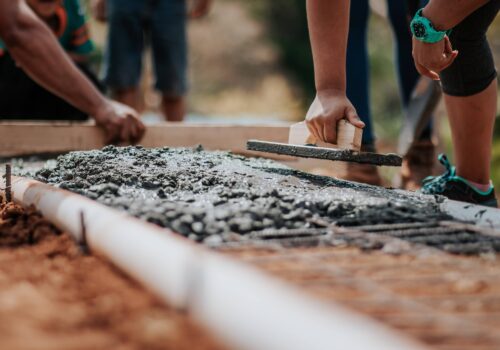It is nearly impossible to operate a construction business without producing waste. However, with material taking up a significant portion of your business budget, it is one area you should consider reducing waste. Recent UK research also reported a 24% increase in building materials cost. So reducing your waste could lower your spending, allowing you to run a more profitable business. You can consider the tips below if you are concerned about your business’s waste production or want to improve your waste reduction.
- Early planning
Your project managers must devise a construction plan before beginning work. A comprehensive and organised one can reduce construction errors, resulting in less material waste on site. Before starting anything, you must consider a few factors in your construction plan. It should include an estimate of how much waste you expect and means of on-site disposal such as composting, recycling and waste bins, the precise amount of materials needed, and a training program for your employees on waste sorting.
- Carefully select your vendors
Choose the right vendors to support your waste reduction goals if you are passionate about your business and its sustainability efforts. And consider one that would suit your job preference without slowing you down, regardless of your project scope. It can be useful if your vendor is flexible with your project schedule. This way, they can help you sort your materials and empty your containers on time, so keep this in mind. Give yourself time to research a vendor that will benefit your business and assist you in realising your waste reduction goals.
- Use the right tools
Every tool is designed for a particular purpose. Using the right one can reduce the effort required to complete a job without causing damage. Aside from preventing potential accidents or damages, you could also avoid wasting your supplies. Carpentry or timber-cutting businesses can reduce their waste when cutting MDF by using the most efficient machinery to accurately cut their boards. For instance, you may strap and re-strap containers and bundles, using more strapping than necessary. Using the wrong tools could result in broken straps and bad cuts, and the seal may also not hold well against the strain. You may have to check the instruments you use if you frequently outspend your construction budget or always have to reorder new supplies.
- Deconstruct instead of demolition
Deconstruction could be a better alternative to demolition. The technique is documented as a reuse strategy since it involves carefully disassembling a building bit by bit to preserve construction materials and minimise waste. Deconstruction and demolition may seem similar. However, the former involves a process that prevents destroying valuable and reusable materials. You can reuse the salvaged materials or transform them into valuable products for use in another construction project. Plus, you may get a tax write-off when you donate some of the recovered materials. Aside from waste reduction, deconstruction can offer several other benefits, including driving your business’s green building initiatives and significant financial returns.
- Recycle materials you can’t reuse
A construction business could benefit from a waste recycling strategy. For instance, you could provide a recycle bin for your teams to toss any materials that they feel could be recycled. This can significantly reduce waste and the amount of waste in your dumpster. You can place items like countertops, baths and sinks in your recycle bin, so feel free to consider this. Some materials you could recycle on your construction site include metal, window glasses, untreated wood, cardboard, carpeting, gravel, concrete, roofing, asphalt and drywall.
- Avoid over ordering
Experts advise seeking input from knowledgeable and experienced professionals when planning a construction project. This way, you would purchase the right products and quantity to avoid ordering too much or too little, especially when dealing with lumber, concrete and others. Assess previous projects to determine how much materials you over-ordered, why that happened and learn from them. It is still possible to over-order even with the most thorough planning. But instead of tossing your unused materials, consider how you can return them. Some suppliers, for instance, may allow you to return unused materials and even those they could repurpose. You may also find ways to salvage leftover materials that you could use in other construction projects.
Your business may enjoy the benefits of reusing materials when you throw less away. Reducing waste could also translate to spending less on waste disposal and reaping tax benefits. The above are a few effective ways to reduce construction waste and become eco-friendlier.























Leave a Reply